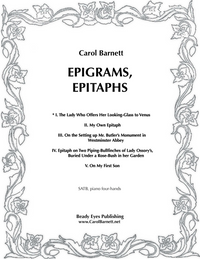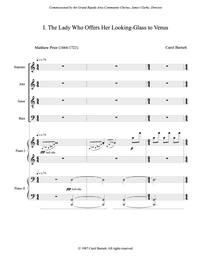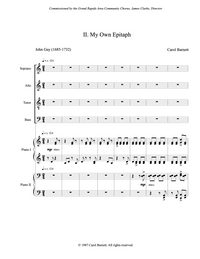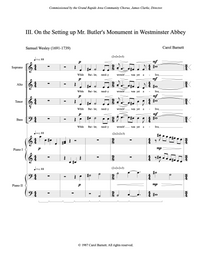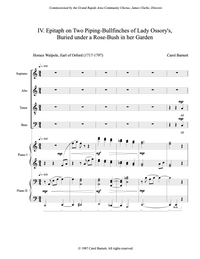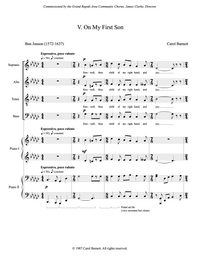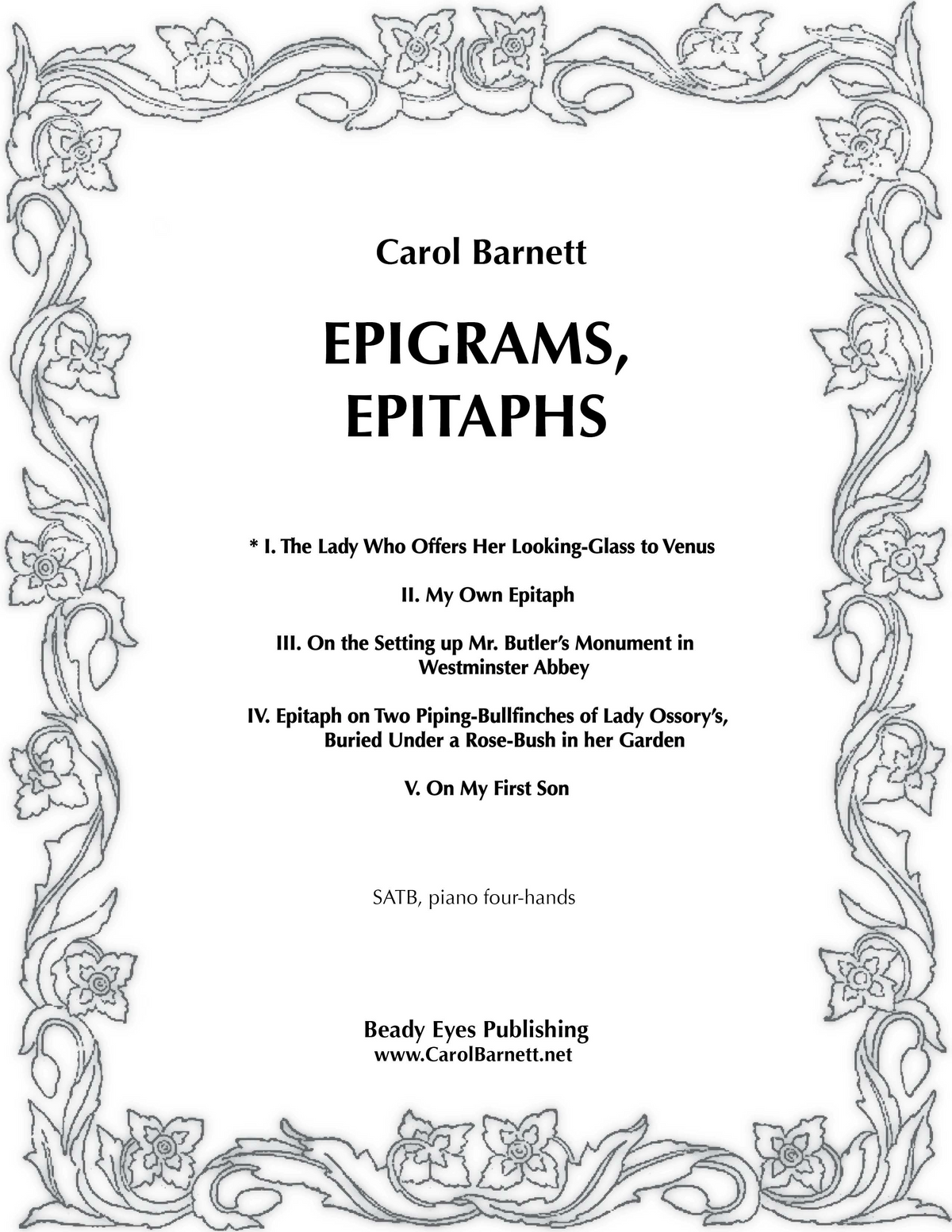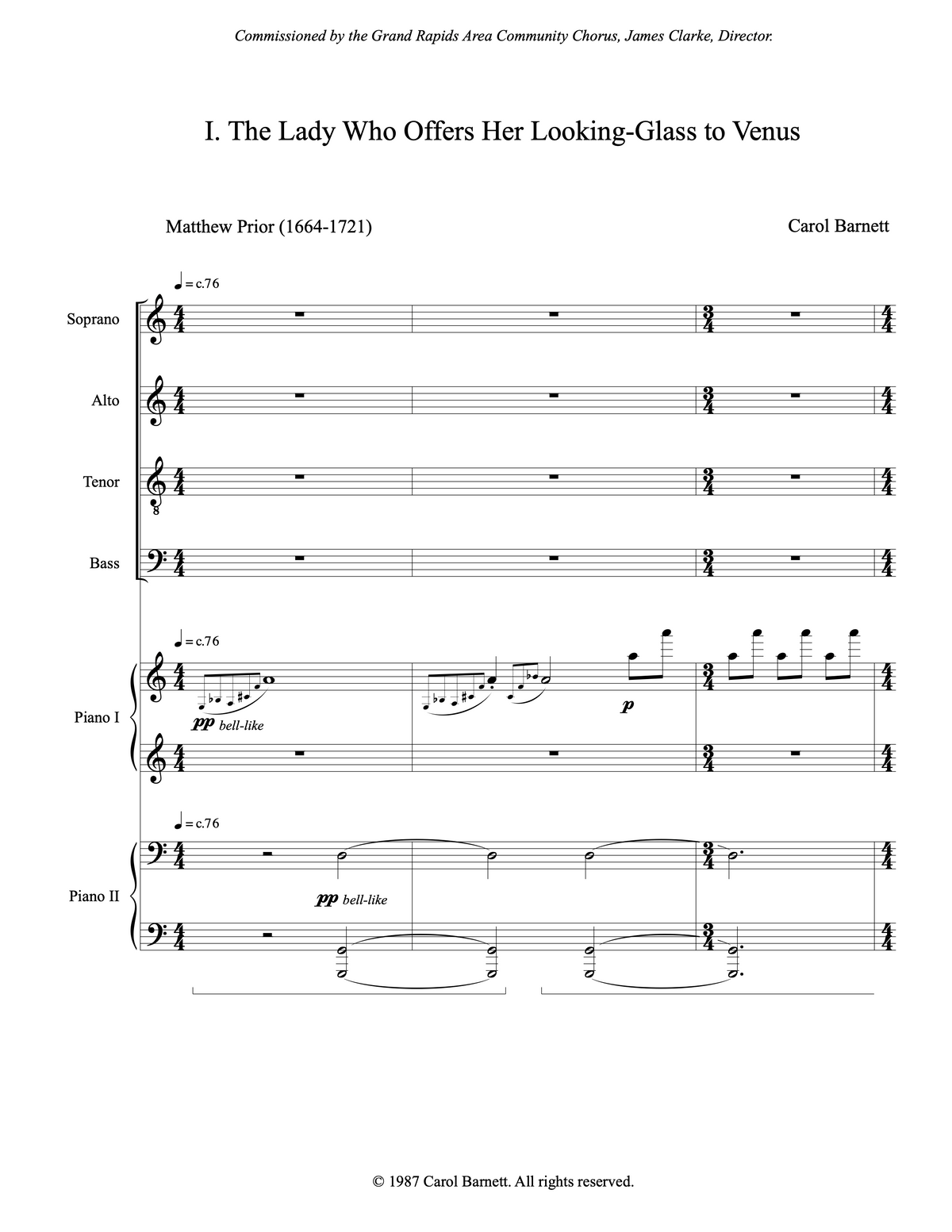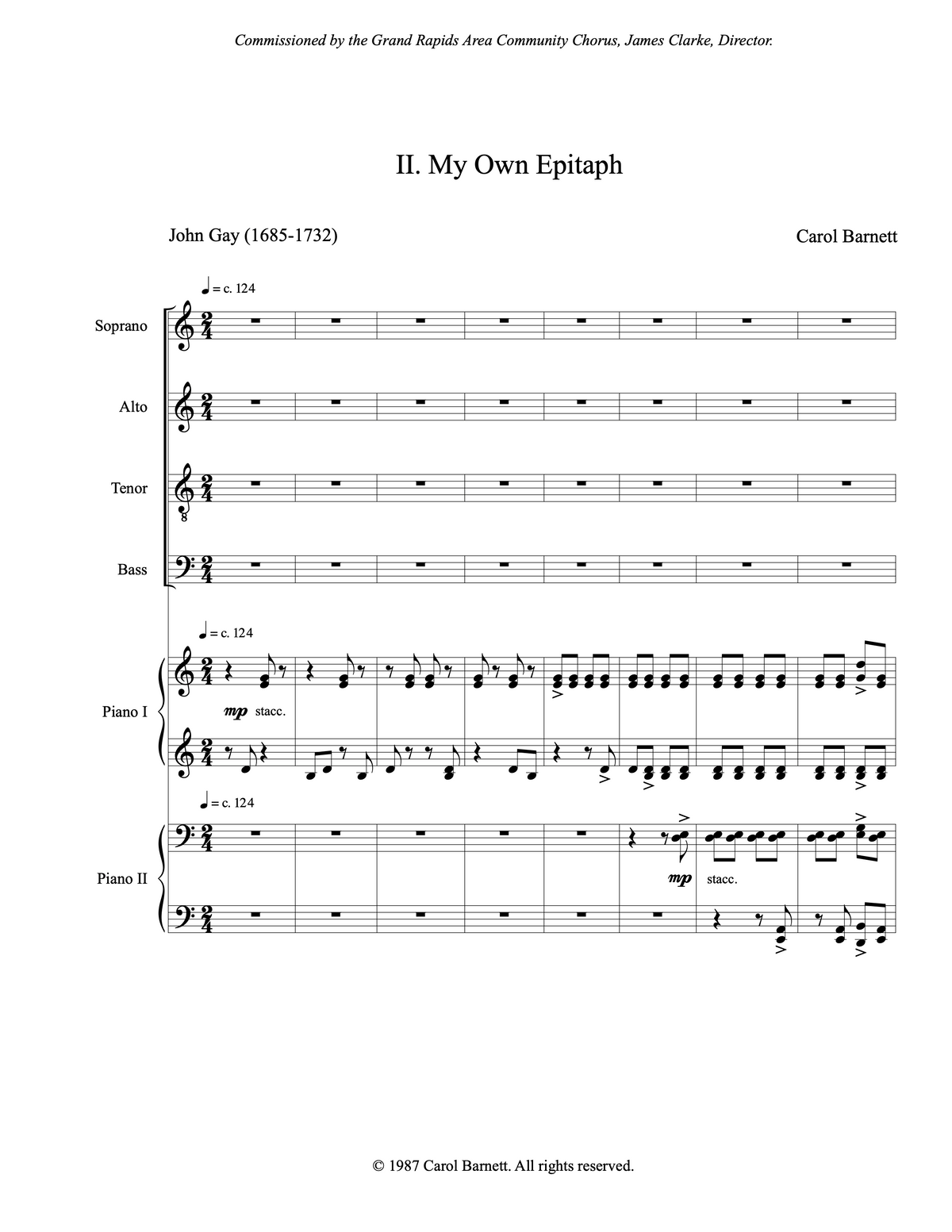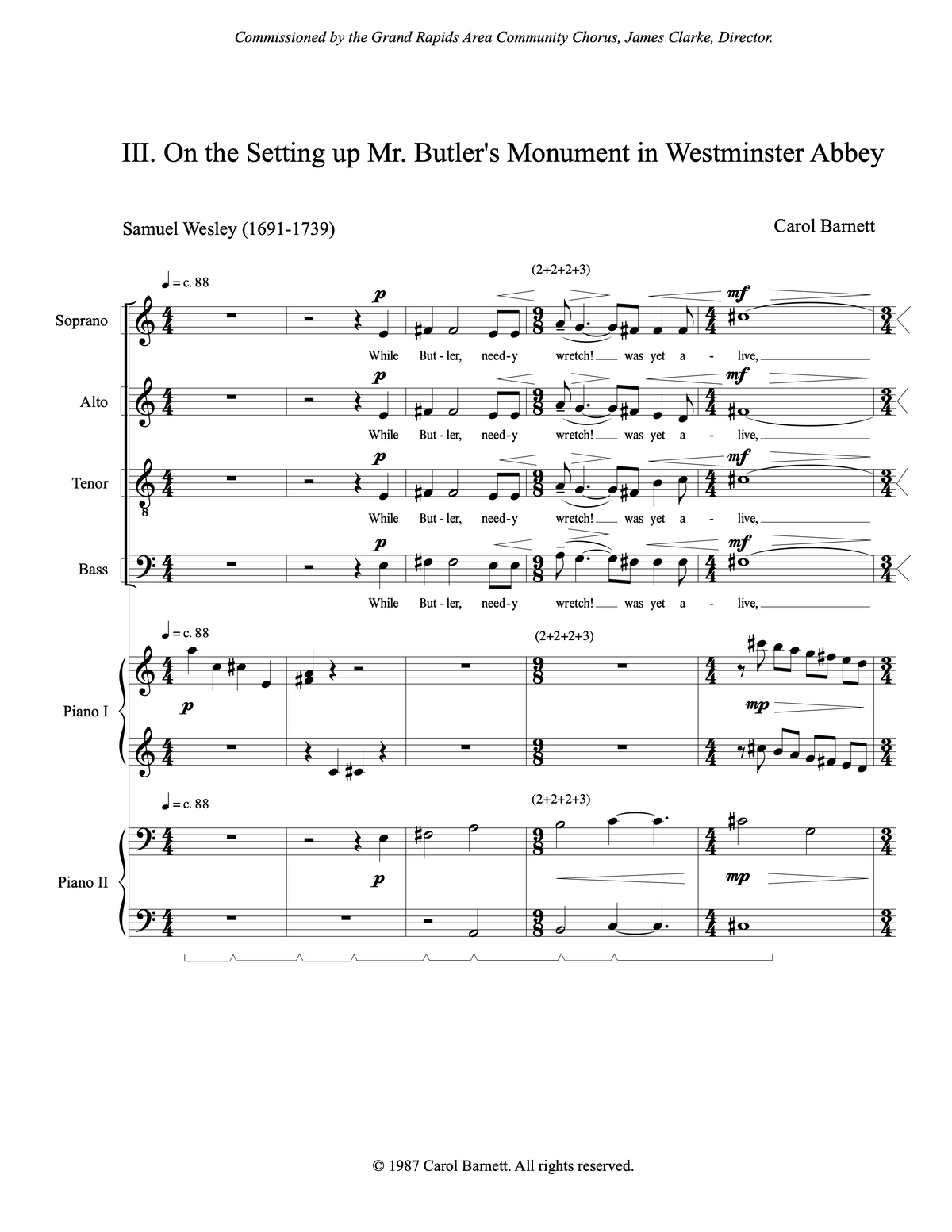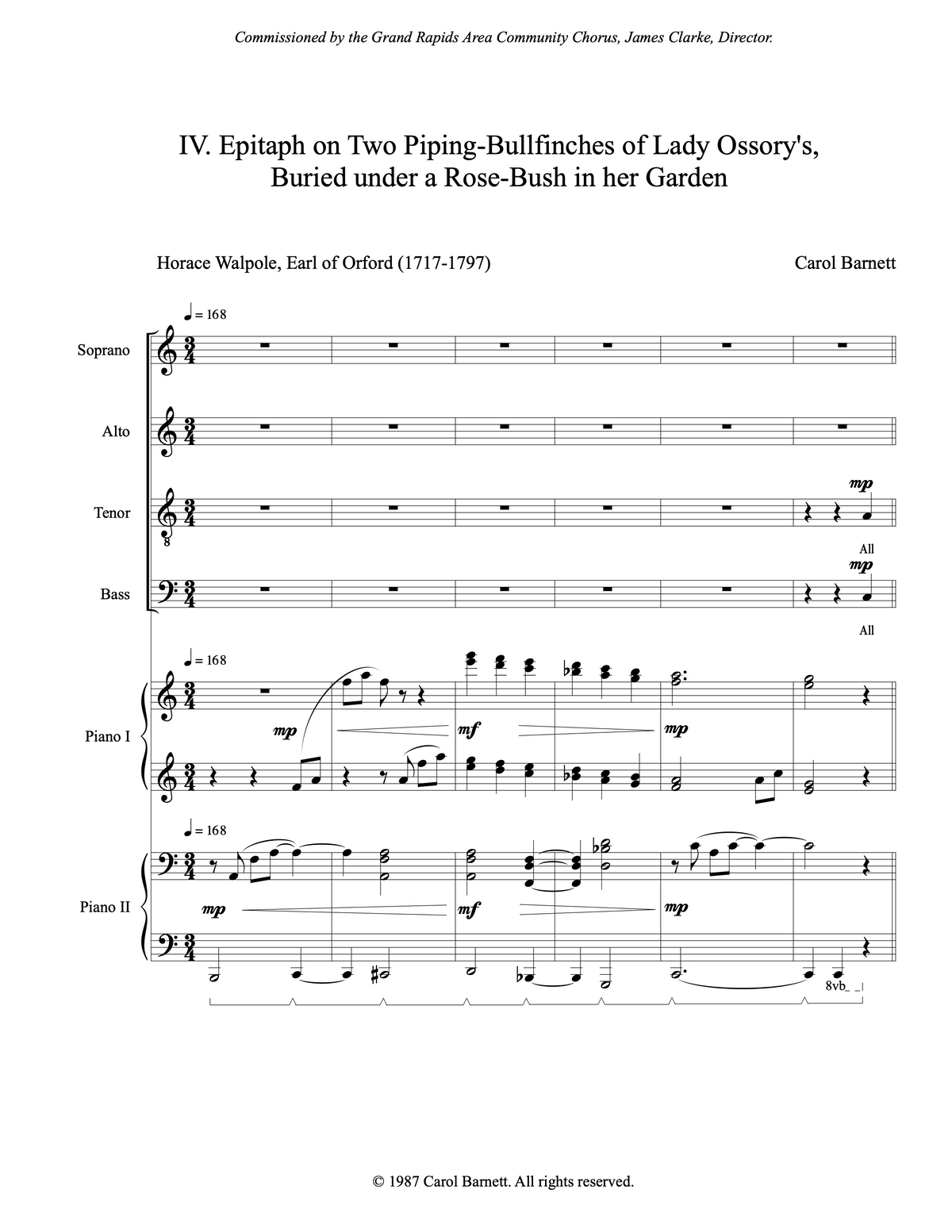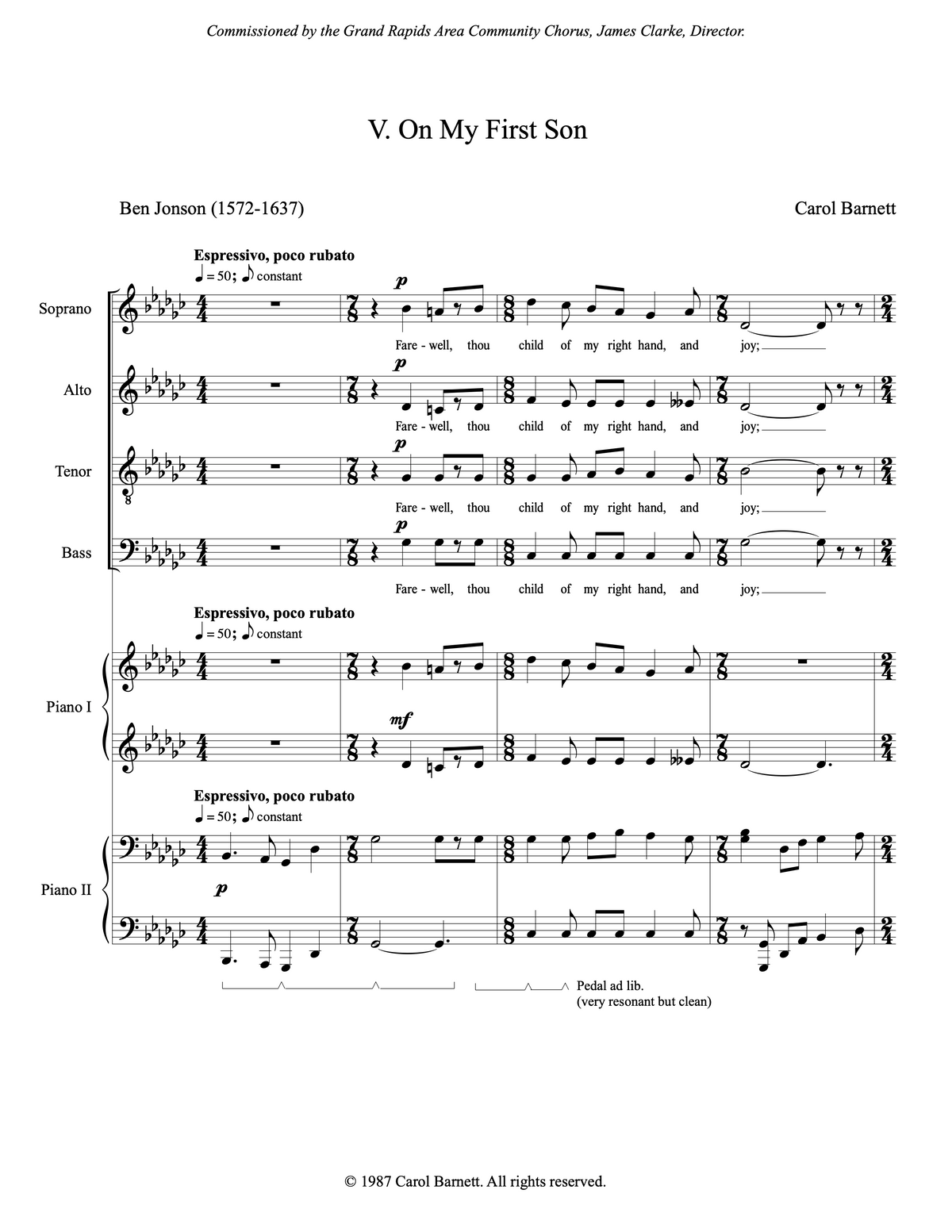Epigrams, Epitaphs – Carol Barnett
- Regular
- $5.99
- Sale
- $5.99
- Regular
- Unit Price
- per
Composer: Carol Barnett
Text by: Matthew Prior (1664-1721), John Gay (1685-1732), Samuel Wesley (1691-1739), Horace Walpole, Earl of Orford (1717-1797), Ben Jonson (1572-1637)
Instrumentation: SATB, 4-hand piano
Duration: c. 16:00
-- 1) The Lady Who Offers Her Looking-Glass to Venus [c 1:45]
-- 2) My Own Epitaph [c 2:45]
-- 3) On the Setting Up Mr. Butler’s Monument... [c 3:00]
-- 4) Epitaph of Two Piping-Bullfinches... [c 3:00]
-- 5) On My First Son [c 3:30]
Date Written: 1987
Composer’s note: Epigrams, Epitaphs was commissioned in 1986 by the Grand Rapids [MN] Area Community Chorus, which wanted a new work for a program that also included the Liebeslieder Waltzes. This was the impetus for the four-hand piano accompaniment as well as the inspiration for the fourth song, stylistically an homage to Brahms. Looking for texts, I found Ben Jonson’s “On My First Son” and fell in love with it. This poem sets the tone for the entire work; all of the texts deal in some way with death (of beauty, of the poet, of two dickey-birds), thus the occasional use of the piano as a great tolling bell. The first three poems are also brief enough to be epigrams, hence the title.
“The Lady who Offers her Looking-Glass to Venus” is filled with the quiet despair of lost beauty. The frequent grace-notes in the piano evoke the last wavering images in the glass; the repeated high notes represent time ticking away the remaining minutes, hours, days.
By turns contrapuntal and homophonic, the tongue-in-cheek “My Own Epitaph” races through several key centers, alternating between duple and triple time in a breathless commentary on the comedy of life.
Samuel Wesley’s “On the Setting up Mr. Butler’s Monument in Westminster Abbey” comments ironically on the proposed placement of a monument to poet Samuel Butler (1613-1680) in Westminster Abbey. Despite being the author of a much-celebrated satirical poem, he died a pauper and a servant—his burial and the monument were paid for by others. Great bells in the accompaniment and mournfully solemn melodic lines ostentatiously immortalize a poet who never quite achieved financial security and independence while alive.
Of the five movements, “Epitaph on Two Piping-Bullfinches of Lady Ossory’s, Buried under a Rose-Bush in her Garden” is the most obvious parody of the Brahmsian style, in keeping with the mock solemnity of the epitaph itself.
One of Ben Jonson’s most moving epigrams, “On My First Son” is set simply and solemnly, with deep-toned bells in the background. The mixed meters and pauses mirror the distracted disorientation of grief.
text
The Lady who Offers her Looking-Glass to Venus
Venus, take my votive glass;
Since I am not what I was,
What from this day I shall be,
Venus, let me never see.
Matthew Prior (1664-1721)
My Own Epitaph
Life is a jest, and all things show it;
I thought so once, but now I know it.
John Gay (1685-1732)
On the Setting up Mr. Butler’s Monument in Westminster Abbey
While Butler, needy wretch! Was yet alive,
No gen’rous patron would a dinner give:
See him, when starved to death and turned to dust,
Presented with a monumental bust!
The poet’s fate is here in emblem shown:
He asked for bread, and he received a stone.
Samuel Wesley (1691-1739)
Epitaph on Two Piping-Bullfinches of Lady Ossory’s, Buried under a Rose-Bush in her Garden
All flesh is grass, and so are feathers too:
Finches must die, as well as I and you.
Beneath a damask rose, in good old age,
Here lies the tenant of a noble cage.
For forty moons he charmed his lady’s ear,
And piped obedient oft as she drew near,
Though now stretched out upon a clay-cold bier.
But when the last shrill flageolet shall sound,
And raise all dickybirds from holy ground,
His little corpse again its wings shall plume,
And sing eternally the self-same tune,
From everlasting night to everlasting noon.
On the Other Bull-finch, Buried in the Same Place
Beneath the same bush rests his brother—
What serves for one will serve for t’other.
Horace Walpole, Earl of Orford (1717-1797)
On My First Son
Farewell, thou child of my right hand, and joy;
My sin was too much hope of thee, lov’d boy,
Seven years thou wert lent to me, and I thee pay,
Exacted by thy fate, on the just day.
O, could I lose all father, now. For why
Will man lament the state he should envy?
To have so soon ‘scap’d world’s, and flesh’s rage,
And if no other misery, yet age?
Rest in soft peace, and, ask’d, say here doth lie
Ben. Jonson his best piece of poetry.
For whose sake, henceforth, all his vows be such,
As what he loves may never like too much.
Ben Jonson (1572-1637)

